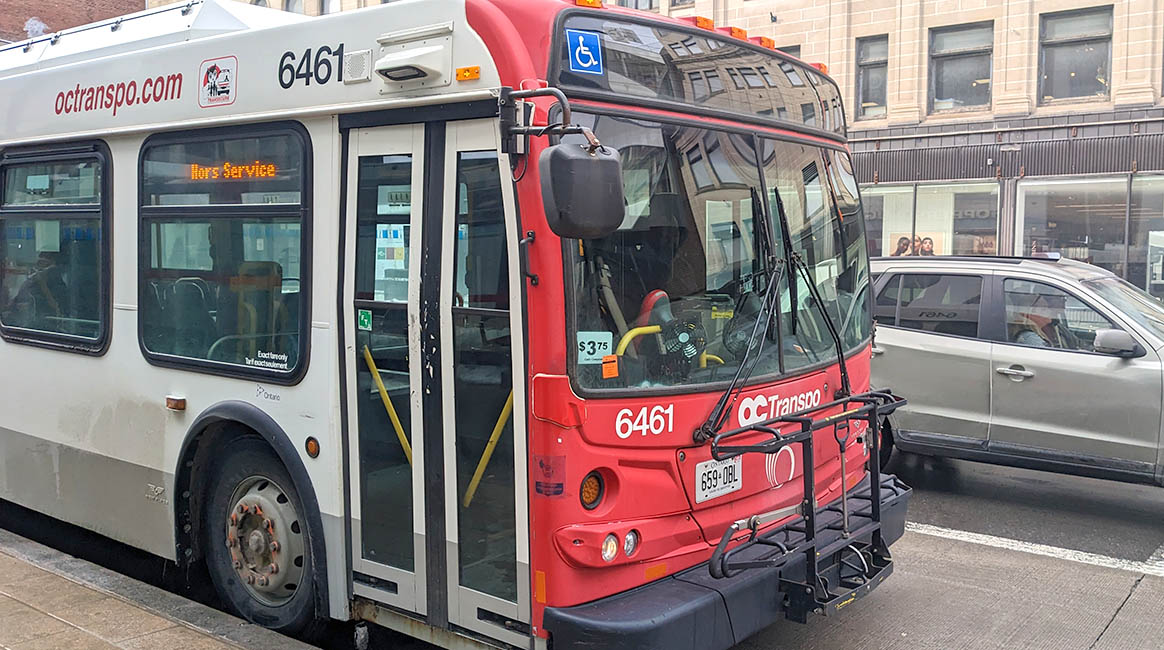
Ridership Increasing Despite Continued Issues with On-Time Service
Transit head Renee Amilcar briefed today’s Ottawa Transit Commission meeting on OC Transpo’s status. She announced that testing for Lines Two and Four of the O-Train commenced on October 7 and is set to last for twenty-one days. Amilcar called it the “final exam”, and the light-rail transit (LRT) has responded “predictably.”
In other good news, ridership on all services is up from September 2023 numbers: single-fair rides are up 27 percent, pass sales are up 24 percent, and there are 4 percent more bus and 11 percent more LRT riders.
In addition to the expected higher numbers due to the return to school and the office, the recent compliance blitz by OC Transpo Fare Inspectors could also account for the uptick in pass sales. From September 3 to 30, a total of 904 tickets were issued to passengers for fare evasion on buses and the O-Train. The heightened enforcement efforts are set to continue until the end of 2024.
During the Transit Commission meeting, Riley Brockington addressed a complaint on X regarding the Special Constables requesting proof of payment (PoP) from transit at Rideau Station earlier today. The rider in question tapped on and didn’t have a PoP. She called the fare enforcement “…a misuse of city services.” The Councillor for River Ward responded: “We are losing millions of dollars due to fare evasion. Yes, there is an inconvenience to stopping to show proof of payment but that is the balance to a PoP system.”
On the performance front, the Transit Commission learned that the conventional OC Transpo bus service continues to experience poor performance, which impacts ridership. Only 76 percent of buses that run every 16 minutes or more arrive on time, while frequent routes (buses that arrive every 1-15 minutest) have an on-time performance rate of 84 percent, which failed to meet expectations of 85 percent.
Despite the low numbers, OC Transpo continues to state that bus service delivery is 98.1 percent. This seems misleading, but it is based on an OC Transpo formula used to calculate service delivery that appears to have no relation to on-time performance. Previous delegations to the Transit Commission pointed out that commuting to work or school has become increasingly difficult because missing a singular bus often means missing a connector. For commuters who work during off-peak hours when buses and trains are less frequent, a bus arriving just five minutes late can create a domino effect, resulting in a significantly delayed arrival at their destination.
Councillor Riley Brockington addressed the on-time service delivery rate, saying, “One in four busses are not on time, and even if we get to 80 percent, one in five busses will not be on time.” He asked Amilcar what more she needed to address on-time performance, saying, “We’ve got to start addressing this,” and said that it is the “number one issue” in his ward. Amilcar gave no response to Brockington.
Councillor Cathy Curry asked if hiring more drivers has reduced overtime costs, pointing out that this was eating into the OC Transpo budget. Amilcar responded that although the service will still rely on overtime in part, the new drivers will reduce the amount significantly.
The commission also received a briefing on the zero-emission bus program with plans to receive 102 vehicles from two different suppliers by the end of 2026.
The Ottawa Transit Commission is scheduled to meet again next month.









